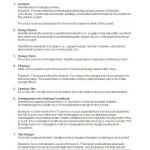The Definitive Guide to the Best Interior Vehicle Cleaners
Maintaining a clean vehicle interior is paramount for comfort, hygiene, and preserving resale value. The market offers a multitude of interior vehicle cleaners, each promising optimal results. Selecting the most appropriate cleaner necessitates understanding specific needs and evaluating the cleaner's effectiveness, safety, and compatibility with different interior surfaces.
This article provides a comprehensive guide to navigating the array of available interior vehicle cleaners, focusing on key factors to consider when making a purchasing decision and identifying some of the top-performing products currently available.
Understanding the Different Types of Interior Surfaces
A vehicle's interior comprises various materials, including fabric, leather, vinyl, plastic, and potentially specialized trim elements. Each material requires a tailored cleaning approach. Using a single, generic cleaner across all surfaces can lead to damage, discoloration, or ineffective cleaning. Therefore, identifying the specific materials within the vehicle's interior is the initial step in selecting the appropriate cleaner.
Fabric upholstery and carpets are often susceptible to stains from food, drinks, and dirt tracked in from outside. These surfaces generally require cleaners with strong stain-lifting properties and potentially enzymatic action to break down organic matter. Leather requires specialized cleaners formulated to moisturize and protect the material, preventing cracking and preserving its suppleness. Vinyl and plastic surfaces are more durable but can still be damaged by harsh chemicals, leading to discoloration or a sticky residue. A pH-balanced cleaner specifically designed for these surfaces is often the most suitable option.
Specialized trim elements, such as wood or metal accents, may require even more delicate cleaning methods. A microfiber cloth and a diluted all-purpose cleaner may be adequate for light cleaning, but harsh chemicals should be avoided to prevent damage.
Key Considerations When Choosing an Interior Vehicle Cleaner
Several factors should be considered when selecting an interior vehicle cleaner to ensure optimal results and prevent unintended damage. These include the cleaner's formulation, pH balance, intended use, ease of application, and user reviews.
The formulation of a cleaner dictates its efficacy and safety for different surfaces. Cleaners containing harsh chemicals, such as bleach or ammonia, can damage delicate materials and pose health risks. Opting for water-based or pH-balanced formulas is generally safer and more effective for most interior surfaces. The pH balance of a cleaner is a critical factor. A pH-balanced cleaner falls around 7 on the pH scale, indicating neutrality. This neutrality minimizes the risk of corrosion, discoloration, or damage to sensitive materials. Alkaline or acidic cleaners can be effective for specific stains or grime, but their use should be limited and carefully controlled.
Specifically, consider the intended use. Some cleaners are designed for all-purpose cleaning, while others are formulated for specific tasks, such as stain removal or leather conditioning. All-purpose cleaners are convenient for general cleaning but may not be as effective on tough stains. Specialized cleaners often provide superior results for specific cleaning needs. Ease of application is another important consideration. Cleaners that are easy to apply and remove save time and effort. Spray-on formulas and wipes are generally the most convenient options. Finally, consulting user reviews offers valuable insights into a cleaner's effectiveness and suitability for different surfaces. Reading reviews can help identify potential drawbacks or unexpected side effects.
In addition to the above, it is important to look for volatile organic compound (VOC) content. VOCs are chemicals that evaporate at room temperature and can contribute to indoor air pollution. Choosing a cleaner with low VOC content minimizes the risk of respiratory irritation and other health problems.
Top-Performing Interior Vehicle Cleaners: A Comparative Analysis
The market offers a broad range of interior vehicle cleaners, each with its own strengths and weaknesses. A few stand out due to their effectiveness, safety, and overall value. This section will analyze several top-performing products, highlighting their key features and benefits. This is not an exhaustive list, but represents a good range of available products.
One popular option is a pH-balanced, all-purpose cleaner designed for use on fabric, vinyl, and plastic. Its non-toxic formula is safe for both users and the environment and is particularly effective at removing dirt, grime, and light stains from fabric upholstery and dashboards. The spray application and easy wipe-off properties make it a user-friendly choice for regular cleaning and maintenance. It often comes in a concentrated form which needs to be diluted as instructed on the container, making it cost effective as well.
For leather surfaces, specialized leather cleaners and conditioners are essential. One option includes a two-step system: a cleaner to gently remove dirt and grime, followed by a conditioner to moisturize and protect the leather. The cleaner is pH-balanced and contains no harsh chemicals, ensuring it won't dry out or damage the leather. The conditioner is enriched with natural oils and waxes to keep the leather supple and prevent cracking. This particular model is also known to be gentle enough to use on automotive leather, which can be more prone to damage than upholstery leather.
Another category involves steam cleaners designed for vehicle interiors which are portable and can reach difficult to reach areas within the vehicle. Steam cleaning is an effective way to sanitize and deodorize vehicle interiors without the use of harsh chemicals. The steam lifts dirt and grime from surfaces, which can then be wiped away with a microfiber cloth. Steam cleaners are particularly useful for cleaning carpets, upholstery, and air vents. Using a steam cleaner effectively depends on the steamer model and the surface type. Some surfaces can become damaged by overuse of steam, and should be avoided. It is important to always follow the instruction manual.
For stain removal, specific stain removers target tough stains like coffee, grease, and ink. Stain removers often contain enzymes or solvents that break down the stain molecules, making them easier to remove. It is crucial to test the stain remover on an inconspicuous area before applying it to the entire surface to ensure it doesn't cause discoloration or damage. If there are concerns about the color of the surface it is being applied to, it may be best to consult a professional automotive detailer.
Finally, interior detailing wipes offer a convenient solution for quick clean-ups. These wipes are pre-moistened with a gentle cleaning solution and are ideal for wiping down dashboards, door panels, and other hard surfaces. They are also useful for removing light dust and fingerprints. When using wipes, always choose a product that is specifically designed for automotive interiors to avoid damaging the surface.
In summary, the best interior vehicle cleaner depends on the specific needs and materials within the vehicle's interior. Understanding the different types of surfaces, considering key factors like formulation and pH balance, and reading user reviews are all essential steps in making an informed purchasing decision. By selecting the appropriate cleaner and following proper cleaning techniques, vehicle owners can maintain a clean, comfortable, and well-preserved interior.

Best Car Interior Cleaners For 2024 Tested

6 Best Interior Car Cleaners Of 2024 Reviewed

Best Car Interior Cleaners Review 2024 Ratings

Best Car Interior Cleaners Review 2024 Ratings

Best Car Interior Cleaners Review 2024 Ratings

Best Car Interior Cleaner Spray Wipe Detailer Turtle Wax

11 Best Car Interior Cleaner 2024 Autozone

Best Car Interior Cleaners Review 2024 Ratings

12 Best Car Interior Cleaners 2024 The Sun

Best Car Interior Cleaners For 2024 Tested








